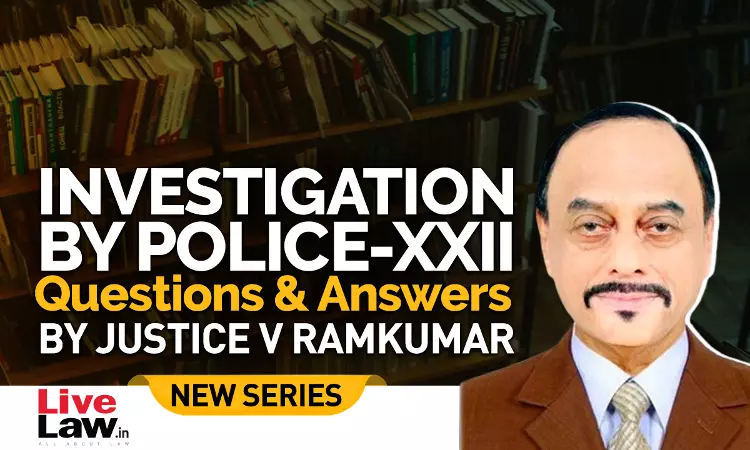Questions & Answers By Justice V. Ramkumar- Investigation By Police- PART XXII
Justice V. Ramkumar
17 Jan 2023 10:50 AM IST

Next Story
17 Jan 2023 10:50 AM IST
Q.106 A private complaint is filed before a Court of Session alleging the commission of certain IPC offences some of which are exclusively triable by a Court of Session. It is alleged in the complaint that since one of the accused persons is a Sub Inspector of Police, the Station House Officer at the Police Station refused to entertain the complaint made to the Police. The Sessions Judge...
